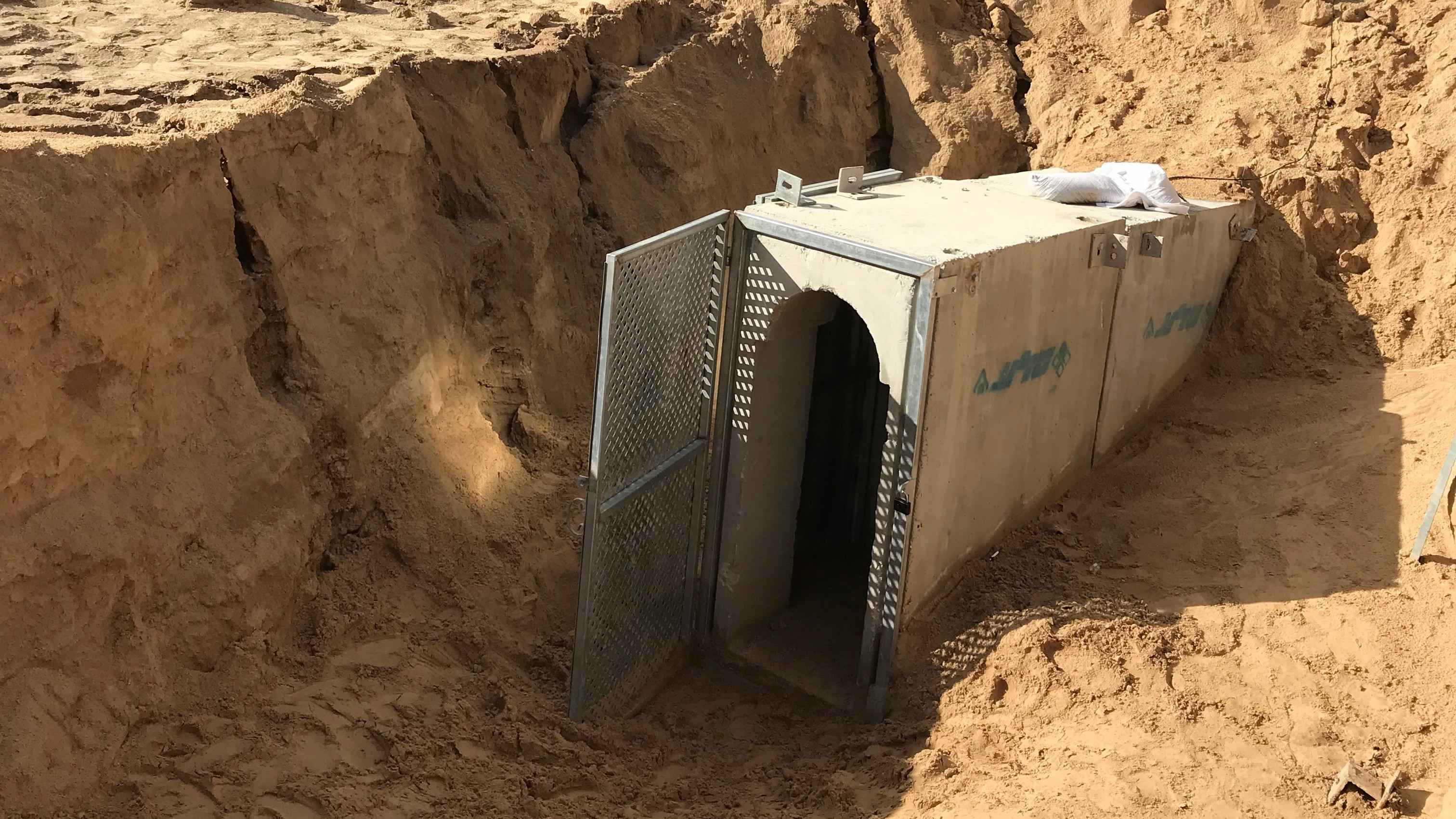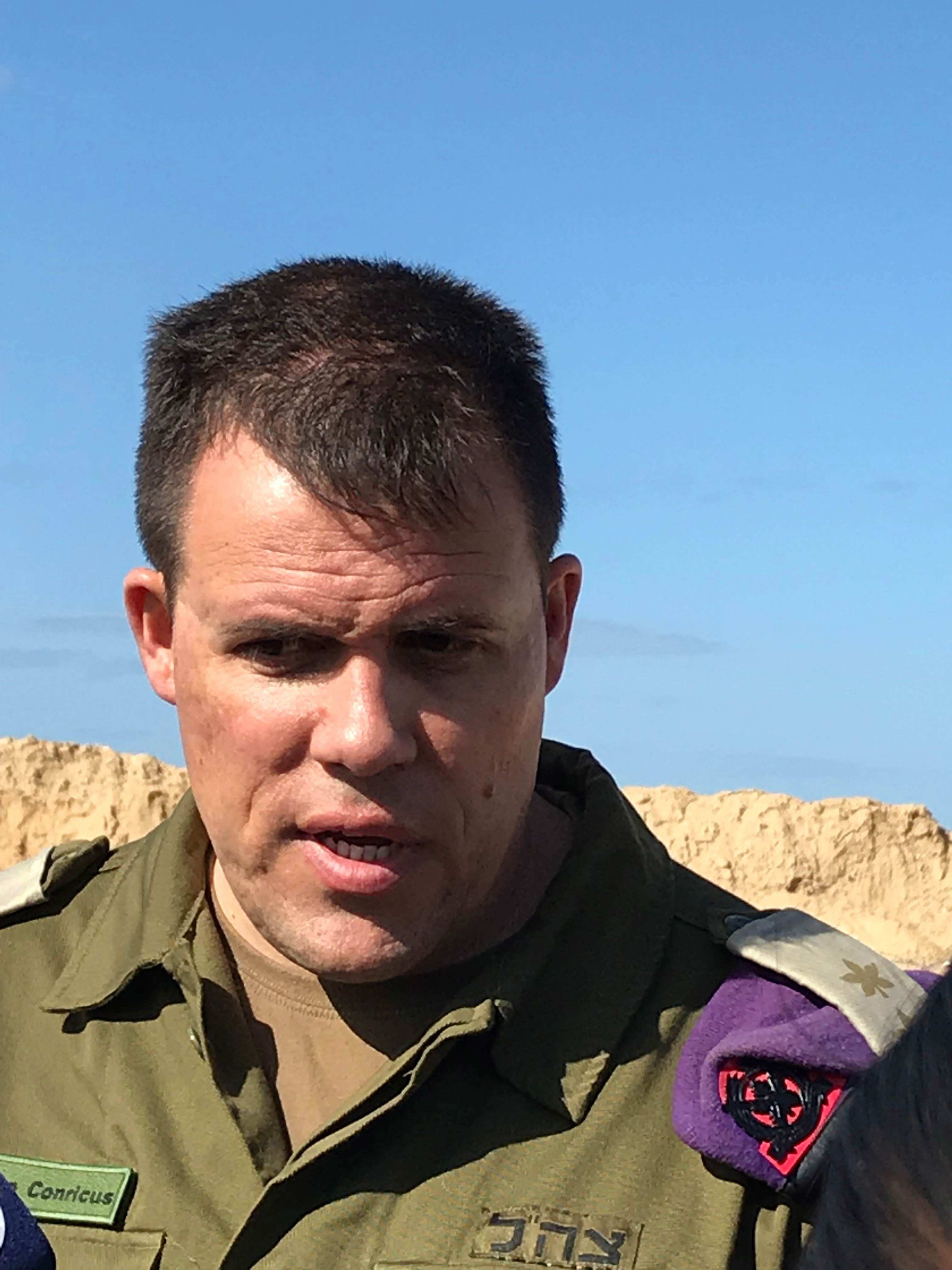
Politics
12:27, 20-Jan-2018
Tunnel Warfare: Israel versus Hamas
By Stephanie Freid

Israel's army invited CGTN into a cross-border attack tunnel the Israel Defense Forces (IDF) blocked and blew up recently as part of what military official terms "Tunnel Warfare" against Gaza's Hamas.
The 1.5 km-long tunnel ran from Gaza into Israeli territory. The IDF struck the tunnel killing five operatives inside at the time.
The narrow tunnel – only a few meters wide and burrowed a few dozen meters underground – was decidedly less sophisticated than larger attack tunnels CGTN's team has visited. Other tunnels sometimes have built-in ventilation and electricity systems and are wide enough for motorcycles to pass through.
The underground systems are used by operatives to smuggle goods into Gaza, hide out and for infiltration into Israel. It takes Gaza tunnel builders about three months to burrow through and construct a kilometer of tunnel.

Jonathan Conricus, IDF spokesperson of Gaza-Israel border /CGTN Photo
Jonathan Conricus, IDF spokesperson of Gaza-Israel border /CGTN Photo
Gaza's tunnels: A city beneath a city
An Israeli military official at the site said a complex system or a "city beneath a city that is tens if not hundreds of kilometers long," as he described it, operates beneath Gaza's streets.
"It's a big industry," the same official said.
The industry includes weapons smuggling from Iran via Egypt.
The Israeli army speculates there are stores of ammunition, mortars and rockets inside Gaza smuggled via the tunnel system. Some are capable of striking Israel’s business center, Tel Aviv, about 50 km away.
Israel's solution: The underground barrier
To block militants from accessing Israel via tunnels, the Israeli government is building a 65-km long underground barrier wall along its border with Gaza.
The wall will be 50 to 100 meters deep and will include an above ground, advanced security fence.
The barrier wall is being built, say IDF officials, to completely block militant movement.
Underground sensors will be installed along the wall to enhance security.
Construction on the barrier started in 2016 – an army spokesperson says it should be completed before 2020. The estimated cost: Just under a billion dollars.
Beyond tunnels...
At the tunnel sight IDF spokesperson Jonathan Conricus said the military approach to eradicating tunnels is a "positive step but ..by no means the end of the story."
When pressed for information on future challenges, an Israeli military official declined to give details. He did confirm that armed drones and penetration by sea present threats that are being addressed.

SITEMAP
Copyright © 2018 CGTN. Beijing ICP prepared NO.16065310-3
Copyright © 2018 CGTN. Beijing ICP prepared NO.16065310-3